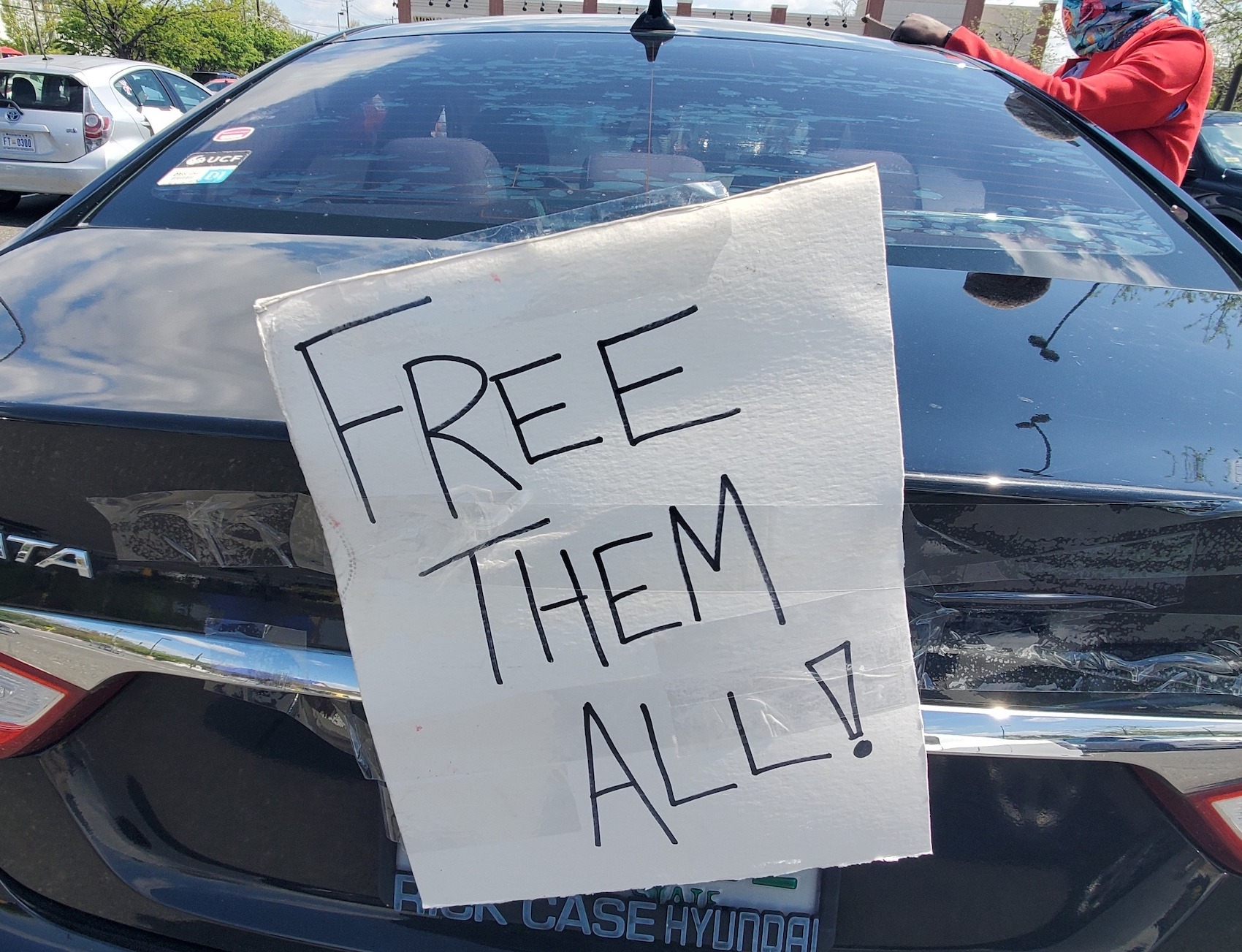Drive-By Protesters Demand Release Of All Prisoners In D.C. Amid Coronavirus
‘It seems like Black people are still being criminalized and are not free,’ one organizer said.

A coalition of activists is demanding that Washington, D.C. and federal officials immediately release all people confined in the city’s correctional facilities.
A caravan of protestors drove through the city on Thursday, honking horns and carrying signs in support of releases that they say have taken on new significance because of the COVID-19 pandemic. The protest was staged to align with the anniversary of D.C. abolishing slavery in 1862.
“It’s important that our city officials understand we’re in a crisis and they need to release those folks and provide security to those residents as well,” Jacob Smith, an organizer with the No New Jails coalition told The Appeal. “Being that D.C. has a high incarceration rate, it seems like Black people are still being criminalized and are not free.” (Statistics show D.C. has the highest incarceration rate in the world.)
The D.C. jail, in which the majority of its roughly 1,400 prisoners are held pre-trial, has become a hotspot for coronavirus infections. To date, 65 prisoners have tested positive for the disease.
On Wednesday, two independent inspectors, appointed as part of a lawsuit filed by the American Civil Liberties Union of D.C. and the D.C. Public Defender Service demanding the release of prisoners, gave a harrowing report of conditions within the jail. Incarcerated people are not being given the necessary supplies to protect themselves against the disease, they said, and those believed to be infected are not allowed to shower and must live in their soiled clothes, the Washington Post reported.
One in three inmates is held in either quarantine or isolation, D.C. officials said.
Last week, D.C. Mayor Muriel Bowser granted release to 36 prisoners in the jail but Smith said that action did not go far enough. “At the end of the day we have not released enough people,” he said.
Along with the jails, people are being held at the Hope Village halfway house and St. Elizabeth’s, a psychiatric hospital where some people are confined to restore competency for court proceedings. Four people have died at that facility because of coronavirus.
Two people have died at Hope Village, where the majority of people are sent to live for an average of six months as they transition from federal prison to the free world. Officials have said they did not die of coronavirus.
Last month, a Hope Village resident described a “scary situation” inside the home to The Appeal. He said that there was no way for residents to properly social distance, cleaning supplies were sparse, and that tensions had escalated after the facility was put on lockdown.
The coalition, which includes Black Lives Matter D.C., Black Youth Project 100 DC, and Life After Release, held a protest starting at the home last week that drew more than 100 vehicles.
